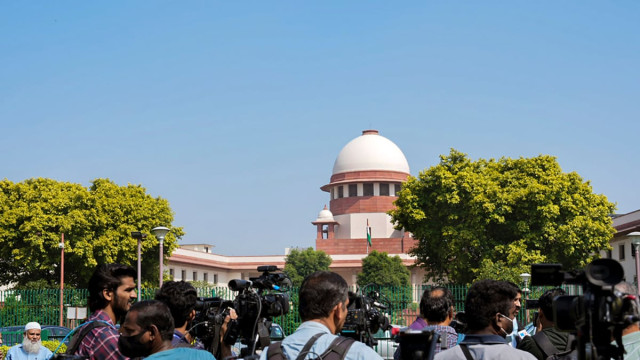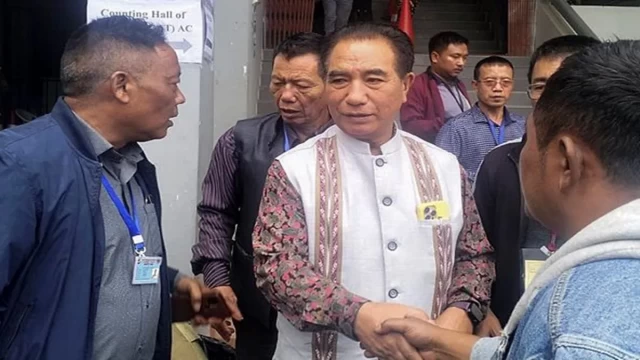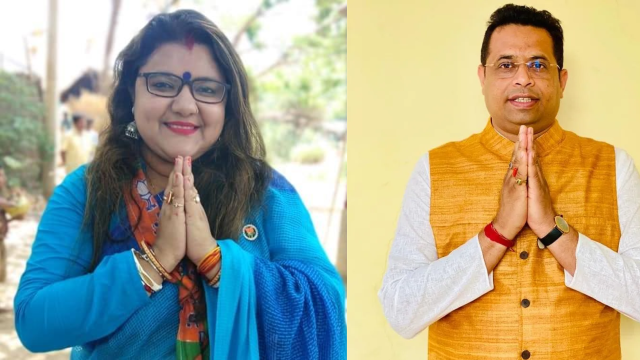Article 370: A Historic Journey from Special Status to Supreme Seal
- Posted on December 11, 2023
- Government
- By Arijit Dutta
- 437 Views
After over four years, the Supreme Court has validated the Modi government's decision to repeal Article 370, marking a historic end to the constitutional provision granting special status to Jammu and Kashmir. The complex journey involved erosion over time, renaming, legal framework changes, and reorganization, aiming to address historical complexities and encourage political reconciliation.
 Image Source -www.news18.com
Image Source -www.news18.com
The
historic journey of Article 370 spans over four years, marked by a significant
transition under the Modi government. Initially conceived as a temporary
measure, it shaped the relationship between the central government and Jammu
and Kashmir, setting unique precedents in legislative interactions. Enshrined
in the Constitution, Article 370 delineated Jammu and Kashmir's distinct
status, limiting Parliament's legislative authority over the state.
The
erosion of Article 370 commenced with early acknowledgments by prominent
figures like Pandit Nehru and Home Minister Gulzari Lal Nanda in the 1960s.
This process unfolded gradually, starting in 1950 with the issuance of the
Constitutional Application Order and evolving through dialogues and agreements,
notably the 1952 Delhi Agreement.
The
Constitutional Application Order empowered the President to issue directives
for the application of Indian constitutional provisions to Jammu and Kashmir.
These orders covered a wide array of subjects, spanning from parliamentary
jurisdiction to emergency powers, signaling the evolving dynamics between the
central government and the state.
Throughout
its existence, Article 370 underwent renaming and amendments, notably the 1954
renaming of the Constitutional Application Order 1950. Subsequent changes,
including the Constitution (Application to J&K) Order, 2019, marked
significant shifts, progressively diluting the potency of Article 370 after
seven decades of its inclusion in the constitutional framework.
The
legal framework surrounding Article 370 empowered the President to issue
orders, modifying constitutional provisions for Jammu and Kashmir. The Supreme
Court, in cases such as P. L. Lakhanpal vs. the State of J&K, validated
this authority, solidifying the constitutional stance.
The transformative August 5 Presidential Order extended all Indian constitutional provisions to Kashmir, thereby impacting Article 35-A. This extension, coupled with the expansion of Fundamental Rights, catalyzed a reassessment of discriminatory provisions, subject to the President's declaration.
Also Read: Ranbir Kapoor, Rashmika Mandanna Starrer 'Animal' Crosses Rs 400 Crore At Box Office On Day 10
Amidst
this complex landscape, the Modi government's reorganization of Kashmir's
political structure aimed to confront historical complexities inherited from
the colonial era. It charted a new policy paradigm, stressing the imperative of
political reconciliation within Kashmir and encouraging stability, fostering
peaceful coexistence, and garnering support for the region's development.
However,
this historical decision didn't come without scrutiny. Concerns were raised
about the procedural aspects of revoking Article 370, particularly the absence
of J&K's Constituent Assembly and consultations with regional political
leaders. The bifurcation and downgrade of statehood, executed without assembly
deliberations, sparked debates over potential strains on India's federal
structure, parliamentary democracy, and societal fabric.
In
summary, the Supreme Court's validation of the Modi government's decision
represents the final chapter in Article 370's intricate journey, signaling a
transformative shift in the political and legal landscape of Jammu and Kashmir.




